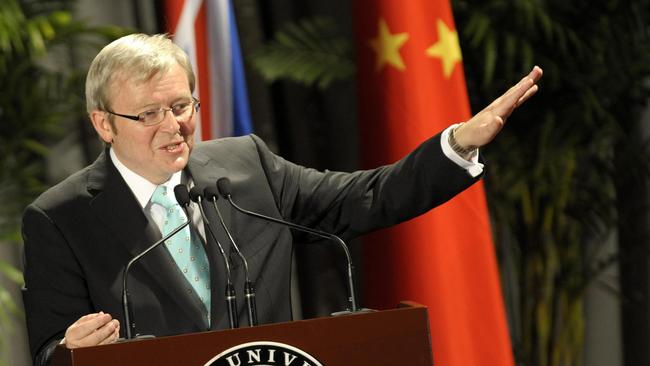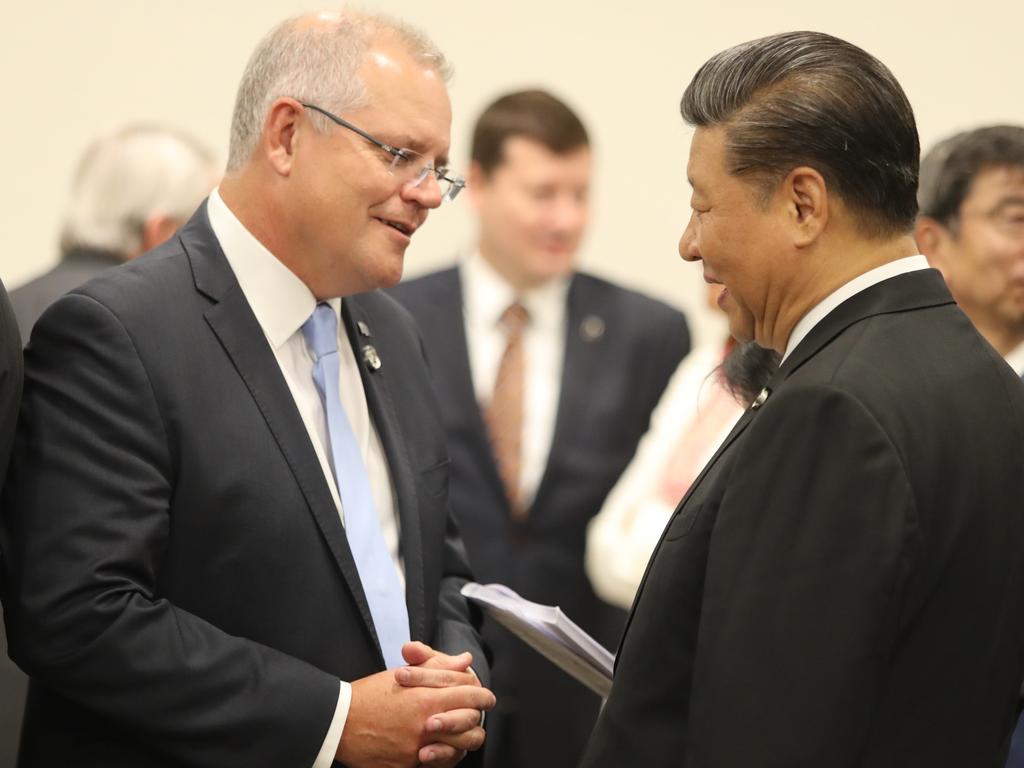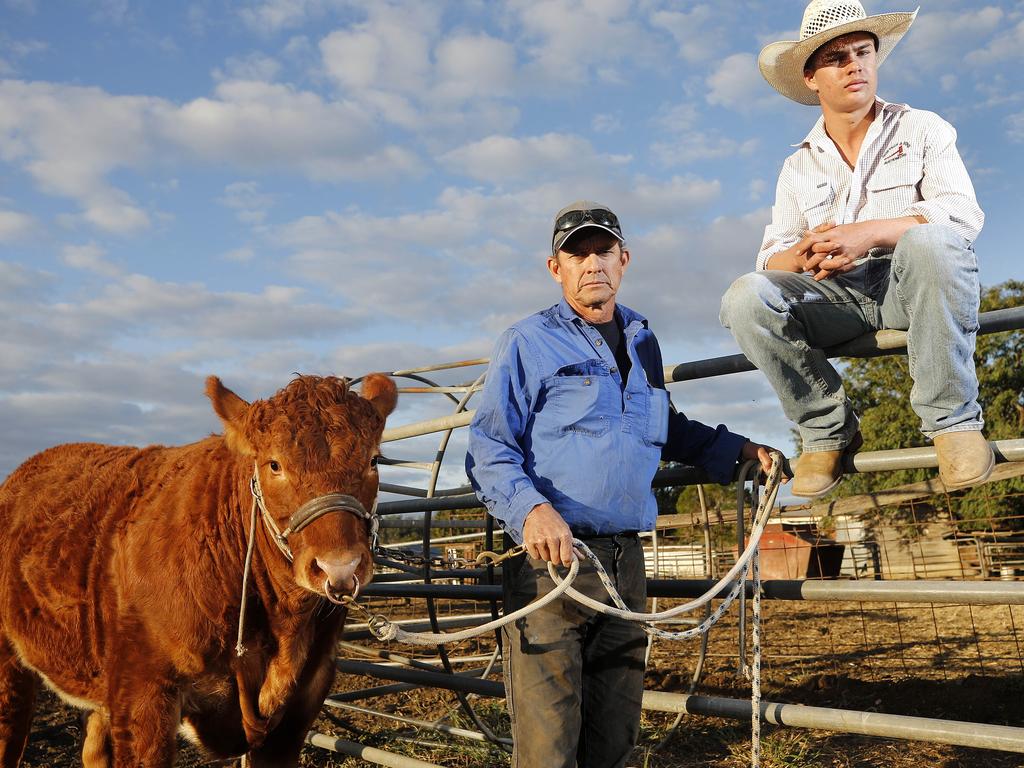
On Barrie Cassidy’s One Plus One interview series on the ABC, Australia’s most respected public servant of recent decades, Dennis Richardson, said that Australia must be friends with China and allies with the US. Richardson has worked with both sides of politics and was a former chief of staff for Bob Hawke when he was PM. John Howard appointed him as director general of ASIO and later he was Australian ambassador to the US and then secretary of the Department of Foreign Affairs and Trade and secretary of Defence.
The Richardson strategy is exactly what we should have embraced but, in my view, (not necessarily Richardson’s) we have not always acted in a way that is consistent with being a “friend” to China.
Paradoxically, as so often happens in these situations, the trigger for the latest dispute, – Scott Morrison’s call for an independent international inquiry into the origins of COVID-19, – we were totally justified.
Indeed China later agreed to a World Health Organisation inquiry.
But our history of “unfriendly” actions caused China to be enraged and led to the current actions. In setting out some of our “unfriendly” actions I want to emphasise that the Chinese have also made mistakes.
The dangers of lecturing
For a long time relations with China were good. As far as I can tell the downward slide actually started in 2008 when former Australian Prime Minister Kevin Rudd lectured students at Beijing university in Mandarin.
The Chinese suffered a century or so of outside rule and during that time they were constantly lectured, and they now hate being lectured with a passion – especially when it comes from a small country like Australia.
And for an Australian PM to lecture Chinese in China and in Mandarin over human rights and other matters created deep-seated rage. It might have faded, but when Julie Bishop became foreign minister the lecturing continued and extended to other politicians. Government officials would often lecture Chinese officials they meet in China. And each Australian lecture caused the memory of 2008 to be rekindled.

Former ANZ chief executive Mike Smith explained that with a touch of arrogance Australians believe that their democratic system is far superior to China and that we like to lecture the Chinese, not only advocating our system but denigrating the Chinese system. The Chinese believe that their system with its central party control is far better for China than a democracy even though under their totalitarian system, those who oppose the central authorities do not fare well, raising many human rights issues in Australian terms.
Another contributor to the breakdown is that in China everyone understands that most of the Chinese newspapers only carry material approved by the state. They think that Australian newspapers have the authority of the government.
It is not healthy for two nations who depend on each other not to have a dialogue at all levels and that danger is doubled by the fact that Australia, at least in Chinese eyes, is drifting further and further into the American camp.
As it happens, China’s relations with the US are far better than with Australia because the Chinese understand what Donald Trump is trying to achieve. There is a clear respect for the opponent.
Around the middle of 2018 a delegation of Australian business people in China were told of the building Chinese anger and that we would receive what we might describe as a “rap on the knuckles” as punishment for our bad behaviour. And, sure enough, some six months later China was true to its word. They targeted our soft underbellies like students, coal, apartments and agriculture but the blows were not severe.
Large Chinese apartment developers were told to sell their big Australian land holdings.
In the Chinese view the latest Morrison lecture was simply a continuation of Rudd and Bishop. We have no standing and are not listened to. Worse still we are now set to be punished again.
Finding common ground
We need to change tack and stop lecturing and start working with the Chinese in areas where we agree and have common interests. The trouble is that lecturing China is now good local politics in the COVID-19 world.
So where can we agree? One of the great concerns of China is that the world will not be able supply sufficient food to feed its population. China’s own food production is being affected because at least 20 per cent of its arable land has been polluted and the figure could be as high as 50 per cent. The rising Chinese middle class no longer trusts Chinese food.
While China looks to Australia as an increasing source of clean food it must be concerned at our lack of investment in water and other infrastructure. Let’s start there.
And we can extend that to the fact that we supply 60 per cent of China’s iron ore and 45 per cent of its natural gas. We are also important suppliers of bauxite and copper. Bauxite is the raw metal for aluminium, and aluminium and copper will be increasingly important in telecommunications and lighter vehicles. China, understandably want to diversify supply sources. How can we help them feel more secure with Australia.?
Again in the words of Dennis Richardson we can be friends with China while still being allies of the US. And our standard of living depends on it.








In most disputes there are two sides. In the case of the current trade dispute with China there most certainly are two sides. Our farmers and any other part of the nation that gets caught up in the dispute need to understand that the Australia’s actions have made a substantial contribution to what we are now seeing, Right has not always been on our side.